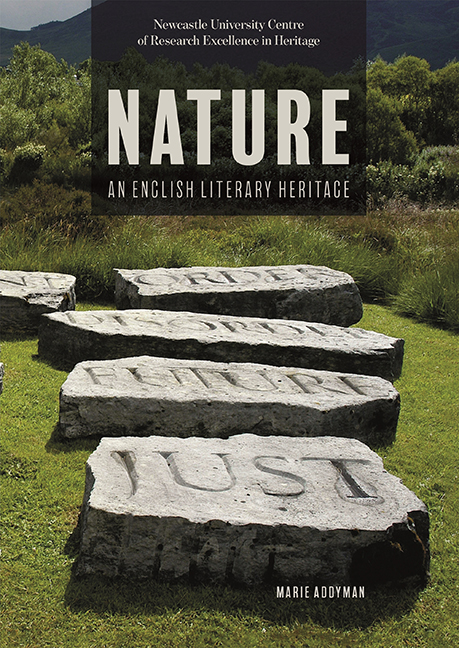Book contents
- Frontmatter
- Dedication
- Contents
- Acknowledgements
- Preface
- Introduction: Infected Minds
- I Nature as (A)morality and Mortality in Early Modern England
- II Living the Wild Life in the Nineteenth Century
- III Nature and History: Towards the Anthropocene
- Afterword: Apokalypsis
- Bibliography
- Index
- Previous Titles
3 - The Natural Family (1): King Lear
Published online by Cambridge University Press: 11 June 2021
- Frontmatter
- Dedication
- Contents
- Acknowledgements
- Preface
- Introduction: Infected Minds
- I Nature as (A)morality and Mortality in Early Modern England
- II Living the Wild Life in the Nineteenth Century
- III Nature and History: Towards the Anthropocene
- Afterword: Apokalypsis
- Bibliography
- Index
- Previous Titles
Summary
On 28 May 2018, the Spring Bank Holiday, the BBC showed a new production of King Lear. The play was enacted over two hours, resulting in some major cuts. The script used combined two versions of the play, the Quarto (including the mock trial in Act III) and the Folio (giving the last lines of the play to Edgar). The play was cast so that the Fool was as old as Lear; Edmund was of mixed race; Edgar had an Irish accent; and Gloucester and Albany were distinguished from the military figures by wearing suits. The production stressed traditional wealth (it was filmed partly at Hatfield House, with the portrait of Elizabeth I clearly visible) and varying aspects of military presence: Lear's knights were his armed guard; Cornwall was a sadistic soldier; Cordelia led her soldiers (who spoke in French) in a foreign invasion; Lear ended up in Act IV in a camp for the homeless and war refugees, being found by Cordelia on the streets. The final scene was set around the Tower of London, suggesting, like the older play of King Leir which had already been acted on the stage in 15943 and which Shakespeare adapted for his own purposes in 1606, that this was part of British history with repercussions in the present day. Lear's ‘Come let's away to prison’, as his older daughters’ ambitious servant Edmund ordered his and Cordelia's incarceration, was an expression of philosophical wisdom, rather than of blind desire to get away from an intolerable situation. Cordelia's shout of defiance to her sisters before being led away, ‘Shall we not see these sisters and these daughters’, was then followed by a dignified lack of resistance to her fate.
Originally, King Lear was played and published in Quarto form six years before Ralegh wrote his Historie, and the Folio edition of Shakespeare's own complete works was published in 1623, three decades before Browne wrote Urne-Buriall. All three works, in positing nature as entropy, dealt with humanity coming to terms with its place in a nature conceived as unavoidable mortality. But it is the dramatised enactment of that existential dilemma in Shakespeare's play as tragically intertwined with the direct consequences of humanity's mix of goodness and sinfulness which has made it the work which not only epitomises its own time but speaks to the future.
- Type
- Chapter
- Information
- Nature: An English Literary Heritage , pp. 75 - 96Publisher: Boydell & BrewerPrint publication year: 2021

